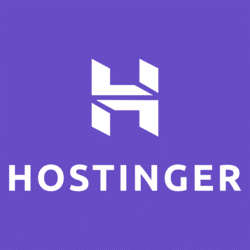Listen to the audio version of this blog post
[beyondwords_player]
Watch the video version of this article:
Table of Contents
Introduction
In the digital era, where online presence is crucial, selecting the right cloud hosting provider for your WordPress site can significantly impact your website’s performance, security, and overall user experience. With a myriad of options available, it can be overwhelming to navigate through the features, pricing, and reliability of different providers. This article aims to dissect and compare the top five cloud hosting providers for WordPress in 2025, focusing on their unique features, performance benchmarks, and pricing structures. Whether you’re a tech enthusiast, an entrepreneur, a writer, a blogger, a student, or a business owner, this comprehensive guide will equip you with the necessary insights to make an informed decision.
Overview of Cloud Hosting
Cloud hosting is a web hosting solution that utilizes multiple servers to host a website, ensuring better reliability and performance compared to traditional hosting methods. Unlike shared hosting, where resources are limited, cloud hosting provides scalability, meaning that resources can be adjusted dynamically based on demand. This makes it an ideal option for WordPress sites that experience fluctuating traffic levels.
One of the main advantages of cloud hosting is its redundancy. If one server goes down, others can take over, ensuring that your website remains online and accessible. Furthermore, cloud hosting often comes with enhanced security features, including automated backups, firewalls, and DDoS protection, making it a preferred choice for businesses and individuals who prioritize data safety.
Top Features of Cloud Hosting Providers
Provider 1: Kinsta – Key Features
Kinsta is known for its premium managed WordPress hosting built exclusively on Google Cloud Platform’s infrastructure. One of its standout features is automatic scaling on all plans, which allows websites to handle surges in traffic seamlessly. Additionally,
Another significant offering is the advanced security protocols, including enterprise-level Cloudflare integration, DDoS protection, hardware firewalls, and automated daily backups with a 14-30 day retention period.
- Unrivalled Performance
- Uptime
- Free Migration
- Add-Ons
Provider 2: WP Engine – Key Features
WP Engine takes a different approach, emphasizing developer tools and enterprise features. They offer unique three-tier development environments – development, staging, and production – for each site, which is more comprehensive than what most competitors provide. Their infrastructure uses a mix of Amazon AWS and Google Cloud Platform, with C2 machines available only on premium plans, unlike
Additionally, WP Engine includes proprietary GeoTarget technology for location-based content delivery, EverCache technology for enhanced caching, and access to 39 premium StudioPress themes. They also provide comprehensive security features with automated platform updates and a 60-day backup retention period, double what most competitors offer. Their 60-day money-back guarantee is particularly generous in the industry.
Provider 3: Cloudways – Key Features
Cloudways focuses on flexibility and choice, offering managed hosting across five major cloud providers: DigitalOcean, Vultr, Linode, AWS, and Google Cloud. They provide one of the most affordable entry points at just $11/month for DigitalOcean servers. The platform stands out with its pay-as-you-go pricing model with no contracts, allowing users to scale resources on demand.
Cloudways offers unlimited website hosting on a single server, which is particularly beneficial for agencies and developers managing multiple client sites. Their stack includes PHP 8.0+, Nginx, and MariaDB optimization, with additional features like Redis caching, Varnish, and built-in Breeze caching plugin. However, unlike some competitors, backups ($0.33/GB) and CDN ($4.99/domain) are paid add-ons.
Provider 4: SiteGround – Key Features
SiteGround has made a name for itself through its balance of affordability and performance, utilizing Google Cloud Platform infrastructure. They offer the most budget-friendly entry point at around $2.99/month for the first year, though renewal rates jump to $17.99/month.
Their proprietary SuperCacher technology enhances WordPress performance, while their security suite includes AI anti-bot system, custom WAF rules, and automatic updates. Unlike other providers, SiteGround includes free email hosting with all plans and offers both phone and live chat support 24/7, making it particularly appealing for small businesses and beginners.
Provider 5: Hostinger – Key Features
Hostinger Cloud Solutions stands out with its exceptional value proposition, offering cloud hosting starting at just $9.99/month. For this price, users get 200GB SSD storage, 3GB RAM, 2 CPU cores, and the ability to host up to 300 websites. Their infrastructure leverages multiple data centers worldwide with built-in CloudLinux for enhanced security and resource isolation.
Hostinger’s user-friendly hPanel control panel makes management simple for beginners, while still offering advanced features like SSH access, Git integration, and WP-CLI. They include free domain registration, SSL certificates, CDN, and automated daily backups with all cloud plans. Their LiteSpeed caching technology ensures excellent performance, while their 30-day money-back guarantee provides peace of mind for new customers.
Performance Benchmarks
Speed Tests
Speed is a critical factor in user experience and SEO. In recent independent speed tests,
WP Engine follows closely with TTFB averaging 250-300 milliseconds, benefiting from their EverCache technology and optimized stack. Cloudways performance varies based on the chosen cloud provider, with Vultr High Frequency servers achieving 165-200ms TTFB, while DigitalOcean averages 300-350ms.
Uptime Guarantees
Uptime is another crucial metric for any hosting provider.
Cloudways delivers 99.99% uptime across most of its infrastructure providers, with particularly strong performance on Vultr and DigitalOcean servers.
Scalability Options
One of the defining features of cloud hosting is scalability.
Cloudways excels in flexibility, allowing users to scale resources with just a few clicks and no downtime. Users can adjust CPU, RAM, and storage independently.
Pricing Comparison
Provider 1: Kinsta Pricing Plans
Kinsta’s pricing starts at $35/month for the Starter plan, which includes 1 WordPress install, 10GB storage, 25,000 monthly visits, and 100GB CDN. Mid-tier plans range from $115/month (Business 1) to $225/month (Business 3), offering more sites and resources. Enterprise plans start at $675/month and go up to $1,650/month, with custom solutions available for larger needs. All plans include premium features like Google Cloud Platform infrastructure, free CDN, and SSL.
Provider 2: WP Engine Pricing Plans
WP Engine begins at $20/month (billed annually) for the Startup plan, including 1 site, 25,000 visits, and 10GB storage. The Professional plan at $39/month allows 3 sites and 75,000 visits. Their Growth plan at $77/month supports 10 sites and 100,000 visits. The Scale plan at $193/month handles 30+ sites and 400,000 visits. All plans include Genesis Framework and StudioPress themes.
Provider 3: Cloudways Pricing Plans
Cloudways offers the most flexible pricing starting at $11/month for DigitalOcean (1GB RAM, 1 Core, 25GB storage, 1TB bandwidth). Vultr High Frequency starts at $13/month with similar specs but better performance. Linode plans begin at $14/month. AWS starts at $38.56/month, while Google Cloud begins at $37.45/month. The key advantage is pay-as-you-go billing with no contracts.
Provider 4: SiteGround Pricing Plans
SiteGround’s StartUp plan costs $2.99/month for the first year (renews at $17.99/month) with 1 website, 10GB storage, and ~10,000 visits. GrowBig at $4.99/month initially (renews at $29.99/month) includes unlimited websites and 20GB storage. GoGeek at $7.99/month initially (renews at $44.99/month) adds 40GB storage and priority support. Their cloud hosting starts at $100/month for more resources.
Provider 5: Hostinger Pricing Plans
Hostinger’s Cloud Startup plan begins at $9.99/month including 300 websites, 200GB SSD storage, 3GB RAM, and unlimited bandwidth. The Professional plan at $14.99/month doubles most resources. The Enterprise plan at $29.99/month includes 300GB storage, 12GB RAM, and 6 CPU cores. All plans include free domain, SSL, CDN, and daily backups.
Conclusion
Choosing the right cloud hosting provider for your WordPress site is a pivotal decision that can impact your online presence significantly. As we’ve explored, each of the top five providers—Kinsta, WP Engine, Cloudways, SiteGround, and
For users prioritizing premium performance and developer tools,
Ultimately, the best choice depends on your specific requirements, traffic expectations, and growth plans. Consider starting with a provider that matches your current needs while offering easy scalability for future growth.
FAQs
What is cloud hosting? Cloud hosting is a web hosting solution that uses multiple interconnected servers to balance load and maximize uptime, ensuring better performance and scalability compared to traditional single-server hosting methods.
How do I choose the right cloud hosting provider? Consider factors like performance benchmarks, uptime guarantees, scalability options, security features, customer support quality, and pricing structure to determine which provider best meets your specific needs and budget.
What is the average cost of cloud hosting for WordPress? Cloud hosting for WordPress typically ranges from $11 to $50 per month for standard plans, with enterprise solutions costing several hundred dollars monthly. Entry-level options like
Are cloud hosting providers secure? Yes, reputable cloud hosting providers offer robust security features including SSL certificates, firewalls, DDoS protection, automated backups, malware scanning, and regular security updates to protect your website and data.
Can I scale my hosting plan as my site grows? Yes, one of the main advantages of cloud hosting is its scalability. All major providers allow you to easily adjust resources like CPU, RAM, and storage as your website’s traffic and requirements grow, often without any downtime.














